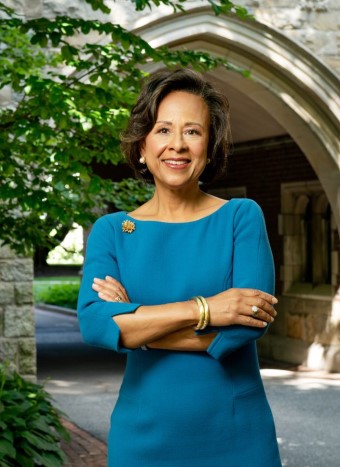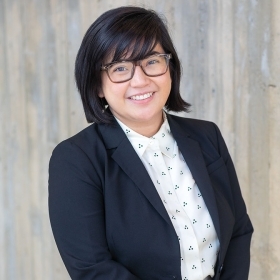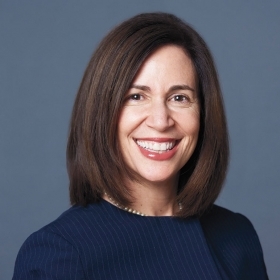
At this dangerous moment for democracies around the world, I’ve been heartened by a surge in student voting on campuses in the United States, with Wellesley prominent among them.
Across the nation, eligible students voted at an average rate of 39.1 percent in the 2018 mid-terms, up from an anemic 19.7 percent in 2014, according to a landmark report from the Institute for Democracy and Higher Education at Tufts University. At Wellesley, the numbers were far higher, with 52.3 percent of eligible students voting in 2018 compared with just 16.4 percent in 2014. All in all, women’s colleges boasted the highest overall voting rates nationally in 2018—50.3 percent—putting Wellesley a few points above this outlier average.
Yet for all this good news, big questions linger: Why aren’t students voting in far greater numbers? How can we better support our students as citizens, at the ballot box and far beyond it?
These questions have loomed large for me in recent months, as I reflect on all that hangs in the balance. Everywhere I look, I see women—and women’s rights—facing new threats. Having spent most of my career in medicine and women’s health, these are areas that especially concern me. I think, too, of ongoing and as-yet-unsuccessful efforts to secure equal pay, affordable child care, and fair and respectful treatment in all areas of our lives.
Such threats are all the more poignant for their historical context. As we move into the 2020 election season, we mark the 100th anniversary of ratification of the 19th Amendment, which barred states from restricting the right to vote based on sex. (As the late and legendary Cokie Boggs Roberts’64 once observed on National Public Radio, the 19th Amendment did not “grant” women the right to vote: “We had the right to vote as American citizens. We didn’t have to be granted it by some bunch of guys.”)
This year also marks the 25th anniversary of the famous proclamation by Hillary Rodham Clinton’69 that “human rights are women’s rights and women’s rights are human rights,” made during her speech in Beijing to the United Nations Fourth World Conference on Women, while last year saw the 400th anniversary of enslaved Africans’ arrival in what is now the United States, the start of a barbarous and unresolved chapter in our nation’s history.
As I reflect on these turning points, I am humbled by all those who have sacrificed to fulfill America’s promise and feel a profound responsibility to carry on their work. I am reminded both of how far we’ve come—and how far we have yet to go.
Spurred by such sentiments, widely shared across our campus, we recently launched #WellesleyVotes, a non-partisan campuswide initiative to foster civic engagement, voting, and other forms of democratic participation. #WellesleyVotes will serve as an umbrella for a range of programs and opportunities tied to effective citizenship, an ideal that reaches far beyond U.S. borders.
While we’re just getting started, much is in the works. One program I’m especially excited about is a spring break intensive for up to 30 students interested in running for elective office, hosted by the nonpartisan nonprofit She Should Run.






